Introduction to Semi Truck Trailers
In the vast landscape of freight transportation, a semi truck trailer plays a pivotal role. This essential component of the trucking industry aids in the efficient movement of goods across long distances. With a plethora of designs and specifications, semi truck trailers have become a crucial element for manufacturers, logistics companies, and independent truckers alike. In this article, we delve deep into the intricacies of semi truck trailers, dissecting their various types, functions, components, and the vital considerations for choosing the right trailer.
Understanding Semi Truck Trailers
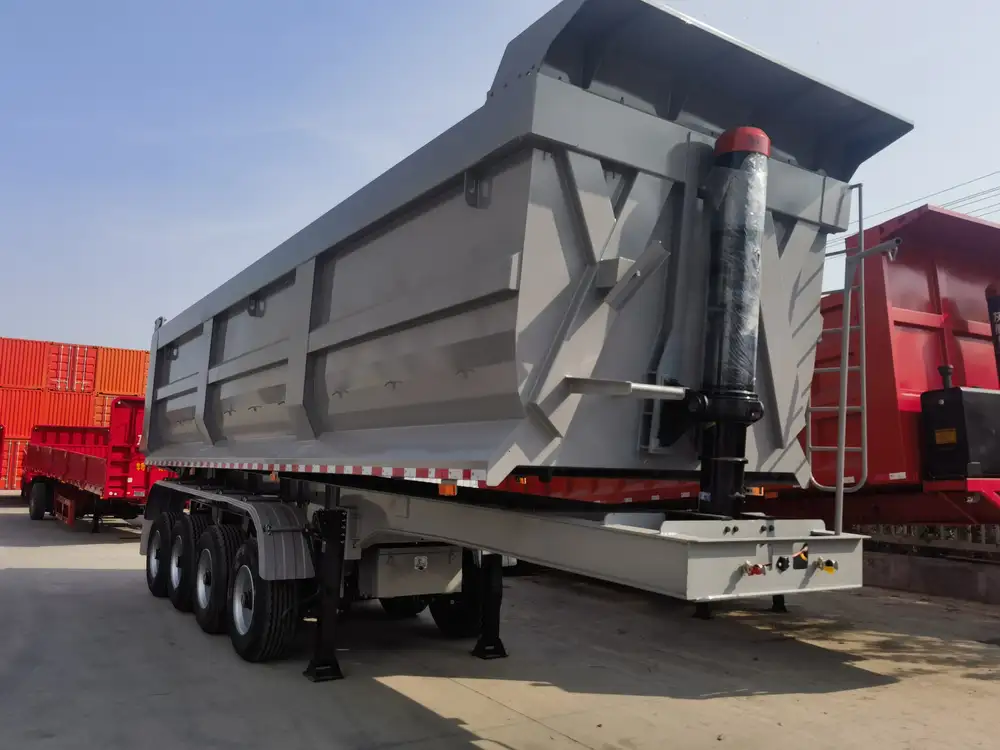
Defining the Semi Truck Trailer
A semi truck trailer, commonly referred to as a semi-trailer, is a type of trailer that cannot stand alone and requires a prime mover, typically a semi truck, for mobility. The trailer is secured to the truck via a fifth wheel coupling, allowing for articulated movement. Semi trailers are designed to carry loads that are both heavy and voluminous, making them indispensable for various industries such as agriculture, manufacturing, retail, and logistics.
Anatomy of a Semi Truck Trailer
To better understand the function and design of semi truck trailers, let’s break down their main components:
| Component | Function |
|---|---|
| Frame | The backbone of the trailer, providing structural integrity and support. |
| Axles | Support the weight of the trailer and its cargo; typically two to three. |
| Tires | Provide road contact; multiple tires help distribute weight evenly. |
| Braking System | Critical for safety; includes air brakes and emergency brakes. |
| Flooring | The surface on which cargo is placed; materials vary based on use. |
| Side Walls | Provide structure and containment for the payload; can be rigid or flexible. |
| Fifth Wheel Coupling | The mechanism that connects the trailer to the truck, allowing for articulation. |
Types of Semi Truck Trailers
Understanding the different types of semi truck trailers is vital for making informed decisions in the trucking industry. Here are some common types:
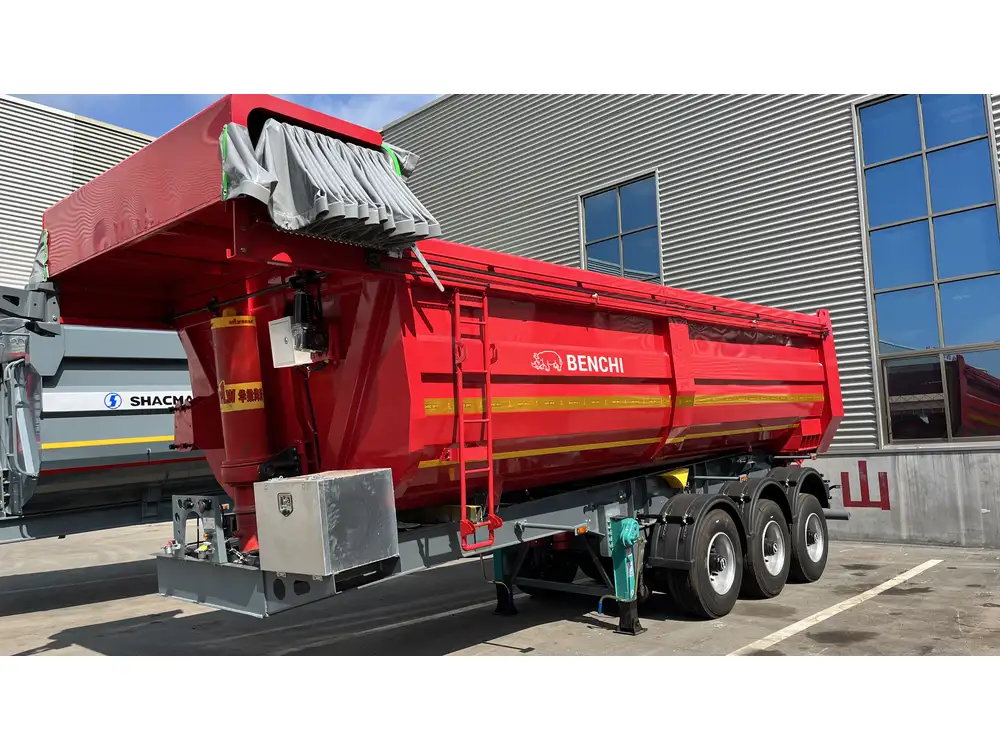
1. Flatbed Trailers
Characteristics:
- No sides or roof, making loading and unloading easy.
- Typically used for oversized cargo.
Pros and Cons:
| Pros | Cons |
|---|---|
| Easy for loading/unloading | Cargo can be exposed to elements |
| Versatile in cargo types | Requires additional securing equipment |

2. Reefer Trailers (Refrigerated Trailers)
Characteristics:
- Equipped with a cooling unit to transport perishable goods.
- Insulated and temperature-controlled.
Pros and Cons:
| Pros | Cons |
|---|---|
| Ideal for perishable items | More expensive to operate |
| Maintains specific temperatures | Heavier due to insulation |
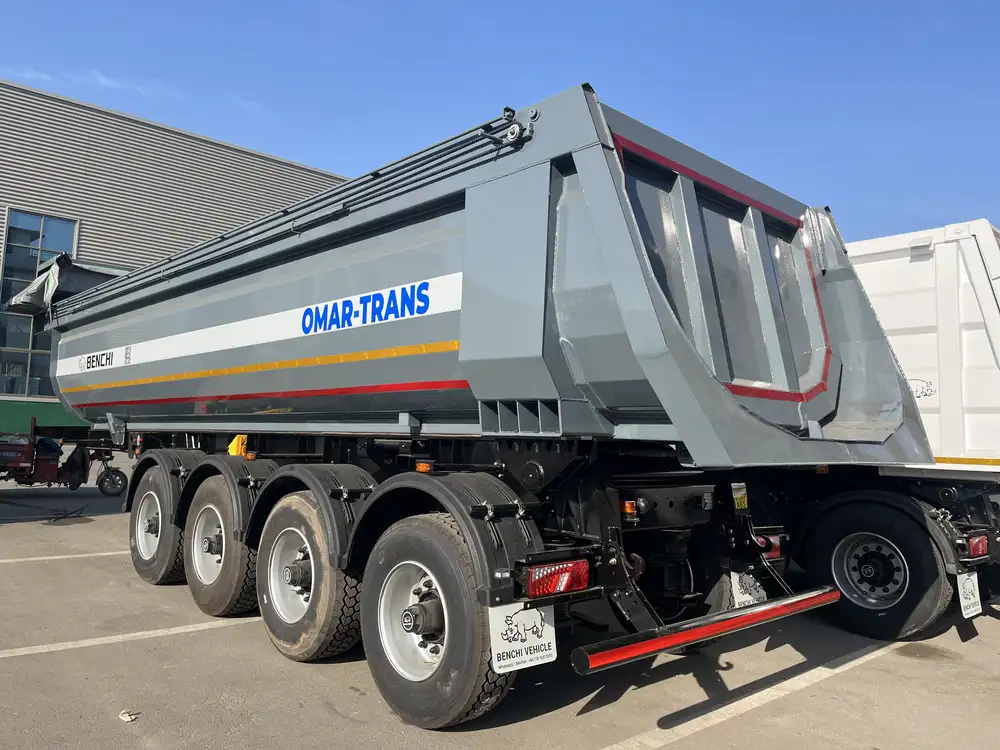
3. Dry Van Trailers
Characteristics:
- Enclosed with rigid walls, a floor, and a roof.
- Commonly used for general freight.
Pros and Cons:
| Pros | Cons |
|---|---|
| Protects cargo from weather | Limited to standard pallet sizes |
| Easier to secure cargo | Heavier than flatbeds |
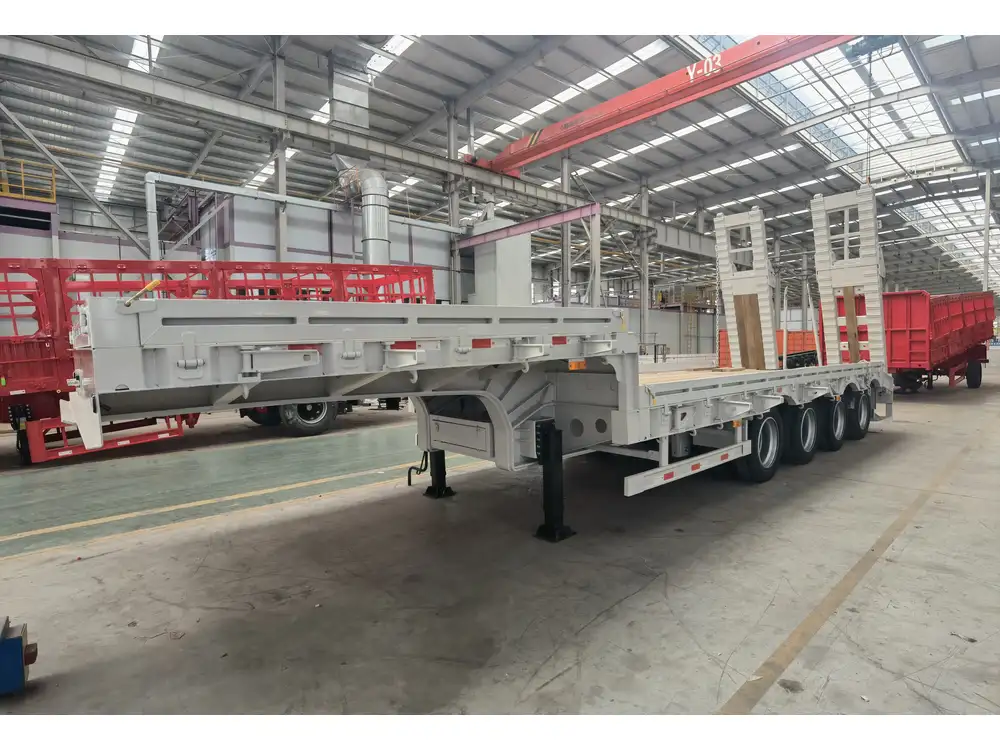
4. Dump Trailers
Characteristics:
- Equipped with hydraulic rams for unloading cargo.
- Primarily used for loose materials like sand, gravel, or dirt.
Pros and Cons:
| Pros | Cons |
|---|---|
| Efficient unloading mechanism | Limited to certain types of cargo |
| Good for construction materials | Requires more maintenance |
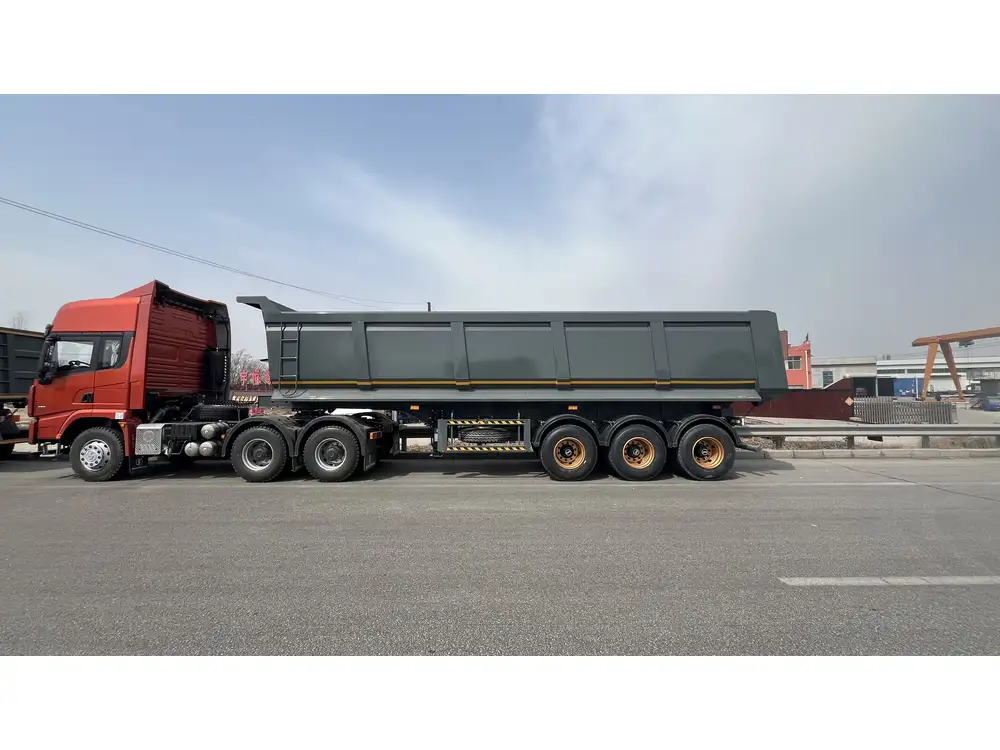
5. Tank Trailers
Characteristics:
- Designed to carry liquids, gases, or dry bulk powders.
- Often include specialized pumping equipment.
Pros and Cons:
| Pros | Cons |
|---|---|
| Ideal for bulk liquid transport | Requires specialized handling training |
| Highly regulated for safety | Maintenance can be complex |
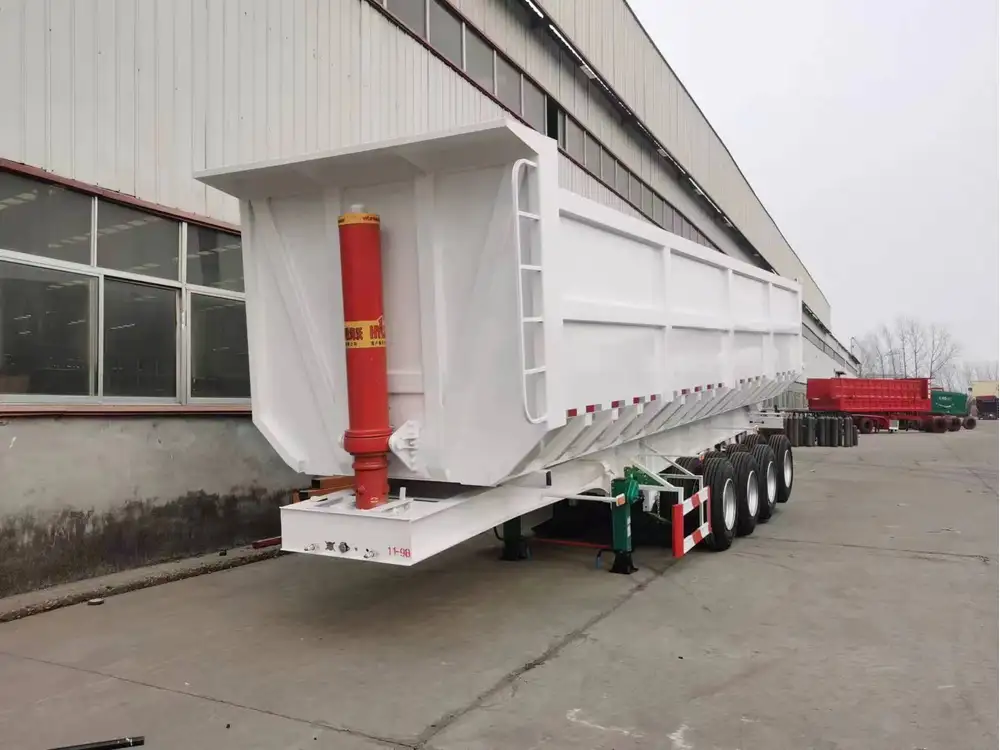
Key Considerations When Choosing a Semi Truck Trailer
Choosing the right semi truck trailer can have significant implications for business efficiency and profitability. Here are key factors to consider:
1. Load Capacity
Understanding the weight and volume constraints of different types of trailers is essential. Evaluate the maximum load capacity required for your operations. Exceeding weight limits can lead to increased costs and safety hazards.
2. Type of Cargo
Different types of cargo require specific trailer designs—reefer trailers for perishables, flatbeds for oversized items, or dry vans for general retail goods. Align the trailer type with your cargo needs.
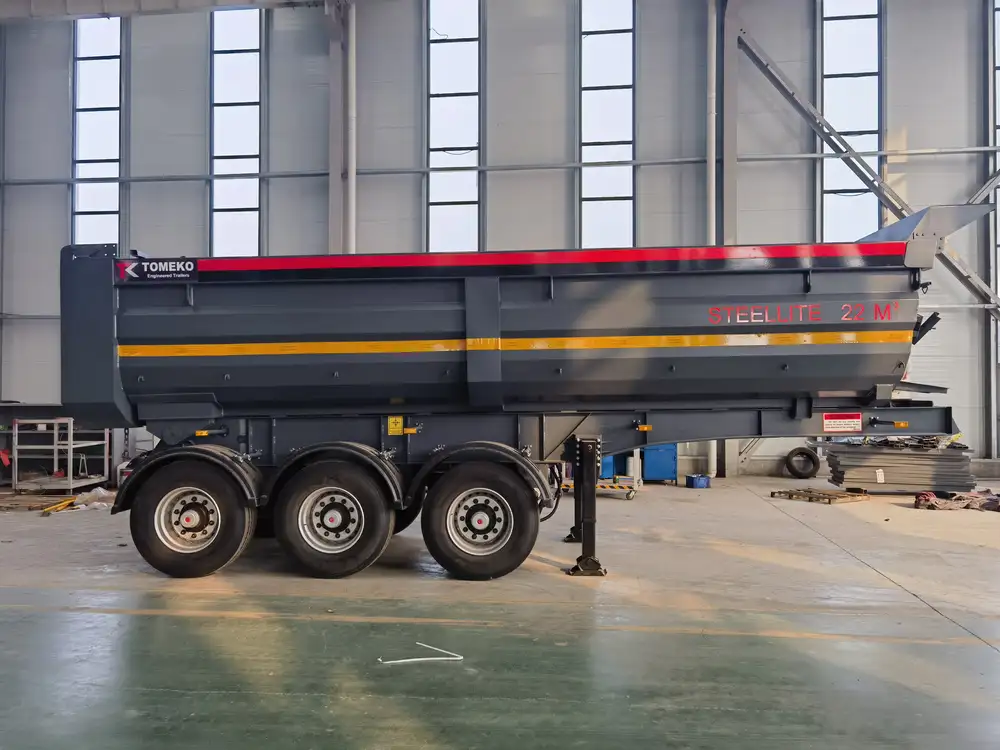
3. Regulatory Compliance
Ensure that the chosen trailer complies with local and federal regulations, including weight limits, safety features, and environmental standards. Non-compliance can lead to fines and operational downtime.
4. Maintenance and Durability
Selecting a trailer with a robust design and quality materials can significantly reduce long-term maintenance costs. Evaluate the manufacturer’s warranty and service options to understand support in case of mechanical failures.
5. Cost Efficiency
Analyze the total cost of ownership, including purchase price, insurance, maintenance, and fuel efficiency. An initial investment in a higher-quality trailer might yield financial savings in the long run.

6. Brand Reputation
Invest in well-known brands that have a reputation for quality and reliability. Research customer reviews, ratings, and case studies related to different trailer manufacturers.
Maintenance Tips for Semi Truck Trailers
Regular maintenance of semi truck trailers ensures safety, efficiency, and longevity. Here are essential tips for keeping trailers in prime condition:
1. Regular Inspections
Conduct thorough inspections before and after every trip. Check critical components such as brakes, tires, lights, and coupling mechanisms.

2. Tire Maintenance
Monitor tire pressure and tread depth. Under-inflated tires can lead to increased fuel consumption and safety hazards. Rotate tires as necessary to promote even wear.
3. Brake System Checks
Ensure that the air brake system operates effectively. Regularly inspect brake pads for wear and replace them as needed to maintain stopping power.
4. Flooring and Structurals Check
Inspect the trailer floor for any signs of wear that may affect its load capacity. Address any damages to the structural integrity of the trailer promptly.

5. Clean and Protect
Regularly clean the trailer to prevent corrosion and build-up of dirt or chemicals. Use protective coatings where applicable to increase durability.
Conclusion: The Role of Semi Truck Trailers in Freight Transportation
In summary, semi truck trailers are indispensable in the freight transportation landscape. They come in various types, each serving specific functions tailored to diverse cargo needs. By understanding the intricacies of semi truck trailers—including their types, components, and maintenance practices—transportation professionals can enhance operational efficiency and ensure compliance with industry regulations.
By choosing the right trailer and committing to regular maintenance, businesses can optimize their logistics solutions, ultimately leading to better service delivery and customer satisfaction. Whether you’re a trucking company, manufacturer, or logistician, investing time in understanding and selecting the right semi truck trailer is essential for thriving in today’s competitive marketplace.



